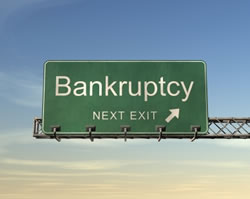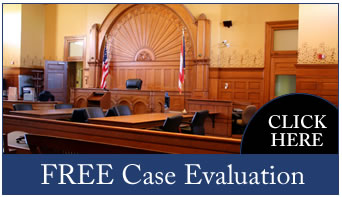 Article I, Section 8, of the United States Constitution authorizes Congress to enact " uniform Laws on the subject of Bankruptcies." Under this grant of authority, Congress enacted the " Bankruptcy Code" in 1978. The Bankruptcy Code (which is codified as title 11 of the United States Code) has been amended several times since its enactment. It is the uniform federal law that governs all bankruptcy cases.
Article I, Section 8, of the United States Constitution authorizes Congress to enact " uniform Laws on the subject of Bankruptcies." Under this grant of authority, Congress enacted the " Bankruptcy Code" in 1978. The Bankruptcy Code (which is codified as title 11 of the United States Code) has been amended several times since its enactment. It is the uniform federal law that governs all bankruptcy cases.
The procedural aspects of the bankruptcy process are governed by the Federal Rules of Bankruptcy Procedure (often called the " Bankruptcy Rules" ) and local rules of each bankruptcy court. The Bankruptcy Rules contain a set of official forms for use in bankruptcy cases. The Bankruptcy Code and Bankruptcy Rules (and local rules) set forth the formal legal procedures for dealing with the debt problems of individuals and businesses.
Bankruptcy Courts
There is a bankruptcy court for each judicial district in the country. Each state has one or more districts. There are 90 bankruptcy districts across the country. The bankruptcy courts generally have their own clerk' s offices.
The court official with decision-making power over federal bankruptcy cases is the United States bankruptcy judge, a judicial officer of the United States district court. The bankruptcy judge may decide any matter connected with a bankruptcy case, such as eligibility to file or whether a debtor should receive a discharge of debts. Much of the bankruptcy process is administrative, however, and is conducted away from the courthouse. In cases under chapters 7, 12, or 13, and sometimes in chapter 11 cases, this administrative process is carried out by a trustee who is appointed to oversee the case.
A debtor' s involvement with the bankruptcy judge is usually very limited. A typical chapter 7 debtor will not appear in court and will not see the bankruptcy judge unless an objection is raised in the case. A chapter 13 debtor may only have to appear before the bankruptcy judge at a plan confirmation hearing. Usually, the only formal proceeding at which a debtor must appear is the meeting of creditors, which is usually held at the offices of the U.S. trustee. This meeting is informally called a " 341 meeting" because section 341 of the Bankruptcy Code requires that the debtor attend this meeting so that creditors can question the debtor about debts and property.
Goals of the Bankruptcy System
A fundamental goal of the federal bankruptcy laws enacted by Congress is to give debtors a financial " fresh start" from burdensome debts. The Supreme Court made this point about the purpose of the bankruptcy law in a 1934 decision:
[I]t gives to the honest but unfortunate debtor a new opportunity in life and a clear field for future effort, unhampered by the pressure and discouragement of preexisting debt. Local Loan Co. v. Hunt, 292 U.S. 234, 244 (1934).
This goal is accomplished through the bankruptcy discharge, which releases debtors from personal liability from specific debts and prohibits creditors from ever taking any action against the debtor to collect those debts.
Types of Bankruptcy
Six basic types of bankruptcy cases are provided for under the Bankruptcy Code. The cases are traditionally given the names of the chapters that describe them.
Chapter 7
Chapter 7, entitled Liquidation, contemplates an orderly, court-supervised procedure by which a trustee takes over the assets of the debtor' s estate, reduces them to cash, and makes distributions to creditors, subject to the debtor' s right to retain certain exempt property and the rights of secured creditors. Because there is usually little or no nonexempt property in most chapter 7 cases, there may not be an actual liquidation of the debtor' s assets. These cases are called " no-asset cases." A creditor holding an unsecured claim will get a distribution from the bankruptcy estate only if the case is an asset case and the creditor files a proof of claim with the bankruptcy court. In most chapter 7 cases, if the debtor is an individual, he or she receives a discharge that releases him or her from personal liability for certain dischargeable debts. The debtor normally receives a discharge just a few months after the petition is filed. Amendments to the Bankruptcy Code enacted in the Bankruptcy Abuse Prevention and Consumer Protection Act of 2005 require the application of a " means test" to determine whether individual consumer debtors qualify for relief under chapter 7. If a debtor' s income is in excess of certain thresholds, the debtor may not be eligible for chapter 7 relief.
Chapter 13
Chapter 13, entitled Adjustment of Debts of an Individual With Regular Income, is designed for an individual debtor who has a regular source of income. Chapter 13 is often preferable to chapter 7 because it enables the debtor to keep a valuable asset, such as a house, and because it allows the debtor to propose a " plan" to repay creditors over time – usually three to five years. Chapter 13 is also used by consumer debtors who do not qualify for chapter 7 relief under the means test. At a confirmation hearing, the court either approves or disapproves the debtor' s repayment plan, depending on whether it meets the Bankruptcy Code' s requirements for confirmation. Chapter 13 is very different from chapter 7 since the chapter 13 debtor usually remains in possession of the property of the estate and makes payments to creditors, through the trustee, based on the debtor' s anticipated income over the life of the plan. Unlike chapter 7, the debtor does not receive an immediate discharge of debts. The debtor must complete the payments required under the plan before the discharge is received. The debtor is protected from lawsuits, garnishments, and other creditor actions while the plan is in effect. The discharge is also somewhat broader (i.e., more debts are eliminated) under chapter 13 than the discharge under chapter 7.





